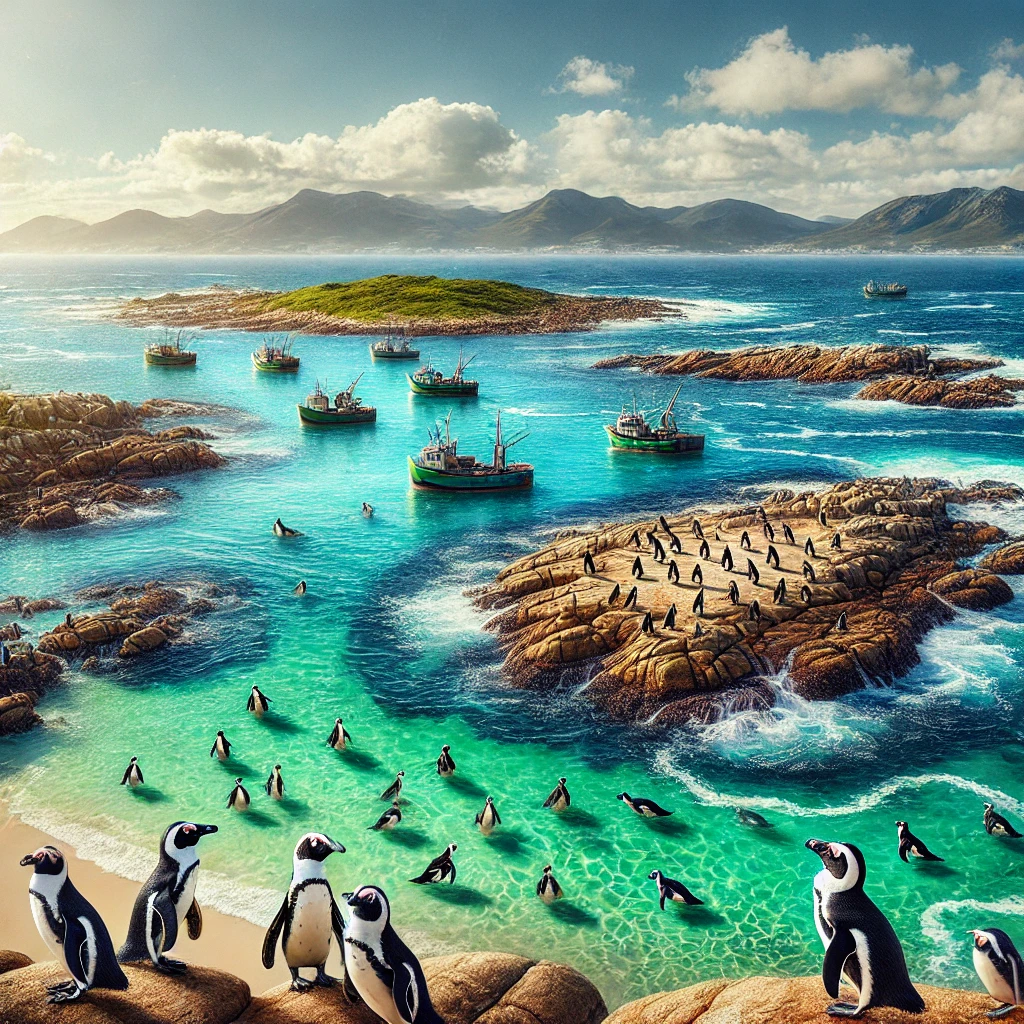SA Secures Court Order to Protect Endangered African Penguins While Balancing Fishing Industry Interests
Dr. Dion George, Minister of Forestry, Fisheries and the Environment, hailed the agreement as a landmark achievement in cooperative conservation efforts.

- Country:
- South Africa
In a groundbreaking move for conservation and sustainable fisheries management, South Africa has successfully finalised a historic settlement agreement through a court order aimed at securing critical protections for the country’s endangered African Penguin population. The agreement, which marks a significant milestone in the country’s environmental stewardship, was reached between the Department of Forestry, Fisheries and the Environment (DFFE), the fishing industry, and leading conservation organisations BirdLife South Africa and the Southern African Foundation for the Conservation of Coastal Birds (SANCCOB).
The settlement, officially issued by the Pretoria High Court on Tuesday, establishes a series of island closures designed to protect key breeding and foraging areas of the African Penguin while ensuring the long-term sustainability of the fishing sector. The decision represents a balanced approach to ecological conservation and economic livelihoods, underscoring South Africa’s commitment to biodiversity protection and responsible resource management.
A Historic Win for Conservation and Sustainability
Dr. Dion George, Minister of Forestry, Fisheries and the Environment, hailed the agreement as a landmark achievement in cooperative conservation efforts.
“Today marks a triumph for conservation and sustainable development. This court-ordered settlement realises the DFFE’s long-standing commitment to protecting our penguins and biodiversity while ensuring the fishing industry’s viability. I am immensely proud of the collaborative spirit that has brought us here, a model for how industry and conservation can work hand in hand for the greater good,” said Minister George.
The African Penguin, once abundant along the South African coast, has suffered drastic population declines in recent decades due to habitat degradation, climate change, and competition for food resources, particularly anchovies and sardines. Without intervention, the species faces a bleak future, making the court order a crucial step in its conservation.
Details of the Island Closures
Under the court-ordered settlement, several key marine areas will be temporarily or permanently closed to fishing operations to protect penguin colonies and their critical feeding grounds. These closures include:
- Dassen Island: Interim closure as per existing permit conditions.
- Robben Island: A 20km fishing exclusion zone, in alignment with the Island Closure Experiment.
- Stony Point: Closure as per the designated black-hatched area in the official agreement, applicable to all fishing vessels.
- Dyer Island: Interim closure in accordance with current permit conditions.
- St Croix Island: Closure following designated coordinates: western boundary at 25°45'E; southern boundary extending from 34°01' to 25°50'E; further southern boundary extending east from 33°59' to 25°59'E; and an eastern boundary up to the adjacent Marine Protected Area (MPA) at 25°59'E.
- Bird Island: A 20km closure radius from the lighthouse, mirroring previous restrictions during the Island Closure Experiment.
These closures are intended to alleviate human-induced pressures on African Penguin populations by reducing competition for food sources and minimizing disturbances to their breeding and nesting sites.
Collaboration for Effective Implementation
The DFFE has reaffirmed its commitment to ensuring the effective implementation of these island closures through rigorous monitoring and collaboration with stakeholders. Scientific assessments and adaptive management strategies will be employed to evaluate the impact of the closures on penguin population recovery while mitigating potential economic disruptions for the fishing industry.
“With this court order, South Africa sets a global standard for environmental stewardship, proving that unity and science-based solutions can secure a thriving future for both nature and livelihoods. We extend our heartfelt thanks to the fishing industry, BirdLife South Africa, SANCCOB, and all involved parties for their dedication to this process,” the department stated.
Balancing Conservation and the Economy
While the agreement has been widely welcomed by conservation groups, concerns remain regarding the economic impact on fishing communities. Small-scale and commercial fishers rely on access to sardine and anchovy stocks, which overlap with penguin foraging areas. To address these concerns, the DFFE has committed to ongoing engagement with the fishing sector to explore alternative solutions and support affected communities.
“This is a delicate balance between conservation and economic activity,” said a representative from the South African fishing industry. “We understand the importance of protecting the African Penguin, but we must also ensure that livelihoods dependent on fishing are not unduly harmed. We appreciate the government's willingness to work with us in finding sustainable solutions.”
A Model for Future Conservation Efforts
South Africa’s approach to African Penguin conservation through legal protection and stakeholder collaboration sets a precedent for global conservation strategies. The integration of scientific research, environmental policy, and industry cooperation serves as a model for addressing biodiversity crises worldwide.
With the world’s attention increasingly focused on climate change and habitat destruction, this agreement highlights the potential for innovative, cooperative solutions that benefit both nature and people. As South Africa takes decisive steps toward securing a sustainable future for its unique wildlife, the protection of the African Penguin stands as a symbol of what can be achieved when conservation and industry unite for the common good.
Moving forward, the success of these protective measures will be closely monitored, with adaptive strategies employed as necessary to refine the balance between ecological preservation and economic sustainability. The future of the African Penguin may still be uncertain, but this landmark agreement offers a renewed sense of hope for its survival.










